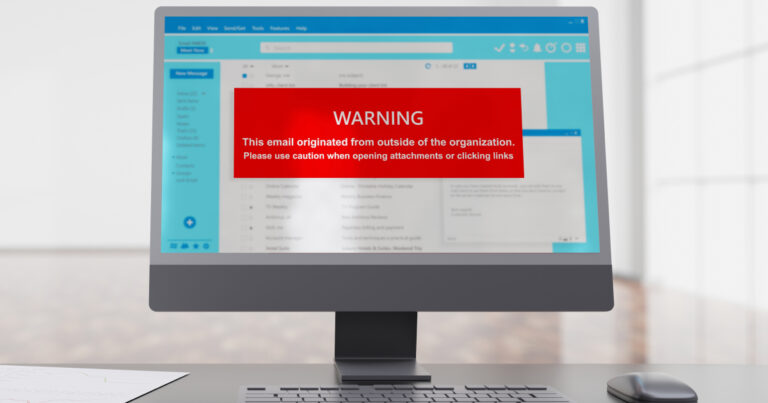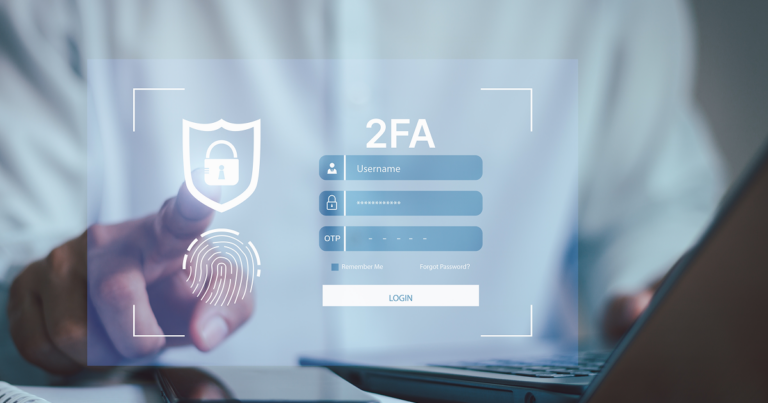Remote work security is an issue for businesses with work-from-home staff because threat protection on personal devices and home networks is often inadequate. Investing in cybersecurity training and tools for remote working employees is a must to prevent hackers from discovering weaknesses in residential setups that can put company information at risk.
This does not mean remote working will automatically lead to security issues, and companies can strengthen safety with improved cybersecurity training, file-sharing methods and network security tools. To meet safety goals, business managers, stakeholders and staff must be diligent about remote work security best practices, which include training and tools.
What Are the Security Risks of Working From Home?
People working from home face security risks such as cyberattacks and network breaches initiated through a household’s router, personal devices or from exchanging information over unsecured connections. These remote working security risks are compounded when IT is not able to oversee software updates and manage devices.
Is It Possible for Employees To Be 100% Secure While Working Remotely?
No one is ever 100% protected from cyber threats, whether he or she is working remotely or from the office. Any device connected to a network is susceptible to hacking attempts, but offices often have the IT resources to keep company-owned devices updated and secure.
What Is the Best Way To Maintain Security While Employees Are Working From Home?
Using a layered approach to cybersecurity that addresses hardware, software and human error is the best way to maintain security for work-from-home employees. This holistic method might include providing a company-issued device, requiring the use of a Virtual Private Network (VPN) and mandating employee training.
7 Working-From-Home Security Tips for Businesses
Device security needs to be a top priority to prevent hackers from gaining access to company data when staff members work from home. Remote working security risks cannot be eliminated, but careful management can help maintain security when employees work remotely. Businesses with hybrid or fully remote workers should follow these remote work security best practices to prevent malicious actors from carrying out cyber threats against the business:
1. Mandate the Use of Company-Issued Devices
It is wise for businesses to require employees working from home to use company-issued devices because IT can remotely access this equipment and ensure it is running the latest antivirus and firewall software. By keeping devices for personal and professional use separate, IT does not need to worry about unnecessary software or programs for personal use becoming access points for hackers.
2. Train Remote Workers To Recognize Hacking Attempts
Training remote workers to recognize and report common cyber threats is one of the best ways to maintain security while these employees work from home. When these attempts are mitigated early, the malicious acts make less of an impact on operations. When everyone understands how downloading unexpected attachments and clicking on suspicious links can lead to security breaches, they are less likely to fall for these scams and give hackers a way in.
3. Implement Remote Work Security Policies
Businesses can offer secure remote-access tools, such as VPNs, and enforce strict safety policies to help protect remote workers’ devices from cyber threats. Company-wide security policies should address remote work security specifically to account for off-site circumstances. If a company allows BYOD (bring-your-own-device), it should also enforce the use of antivirus protection software and recommend the use of free online tools, such as Audit My PC, to test for security vulnerabilities. Remote work policies can also address password security by requiring employees to select strong passwords or passkeys and implement two-factor authentication.
4. Use Secure Remote-Access Tools
Every work-from-home staff member a business employs should be trained to manage sensitive data using remote-access tools and best practices. Using a VPN, an encrypted connection between off-site devices and company resources, is another way to protect sensitive information without hindering work capabilities. Selecting a quality provider for the VPN is essential, as an overloaded network can cause obstacles for remote work security. IT should restrict access to network files based on employees’ duties to further prevent one breach from jeopardizing all company data. When employees use the VPN rather than emails or unsecured connections, information sharing is more private and secure.
5. Physically Secure Work-From-Home Devices
A lost or stolen business phone or laptop is a serious remote working security risk that is often overlooked until an incident happens. When employees are working from home or in public spaces, they must be diligent about physically securing their equipment from thieves waiting for an opportunity. When staff travel for business or work in public places, they must be trained never to leave devices unattended or unlocked. Using biometrics to secure phones or computers can also prevent bad actors from gaining access to devices in their possession. Locking the home office or stowing the laptop or tablet in a locked drawer during off-work hours is another remote-work security best practice all employees should follow.
6. Step Up Videoconference Security
Any technology used consistently by remote workers can become a target for hackers, and this includes the tools needed for telecommuting. Videoconference platforms have built-in security features that businesses should take advantage of to keep meetings private and confidential. Setting unique meeting IDs, setting up password-protecting video conferences and using waiting rooms to vet attendees are tactics that make it harder for unwanted visitors to gain access to meetings.
7. Invest in Threat Monitoring
Having company employees spread across multiple off-site locations makes threat monitoring a challenge for IT teams. When cybersecurity for work-from-home employees includes cyber threat intelligence tools, the IT team is better prepared to stop intrusions. The intel these platforms provide helps predict hacking attempts and guides IT personnel on which areas may need additional security to stop these intrusions.
Professional-grade cybersecurity services like a managed firewall, advanced threat protection and hosted antivirus and spyware are a must for businesses with hybrid, remote or on-site staff. Expert tech assistance through FTC IT Solutions provides the protection and peace of mind businesses count on.




